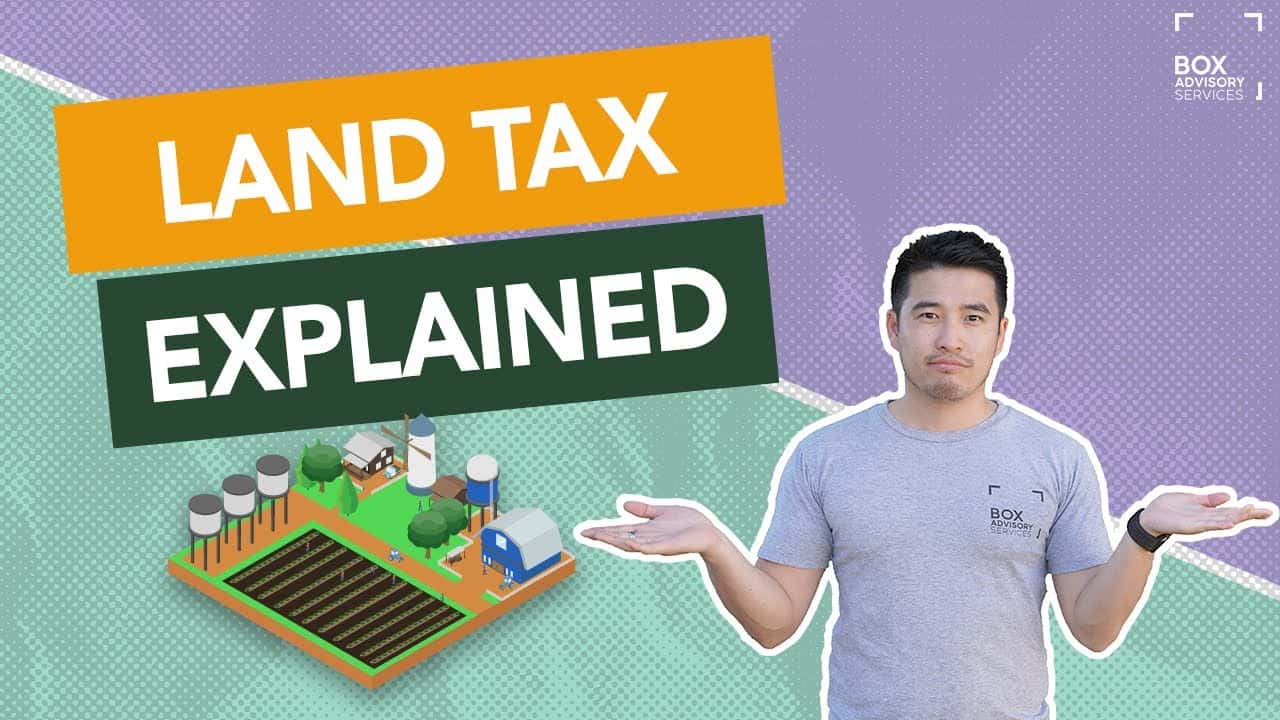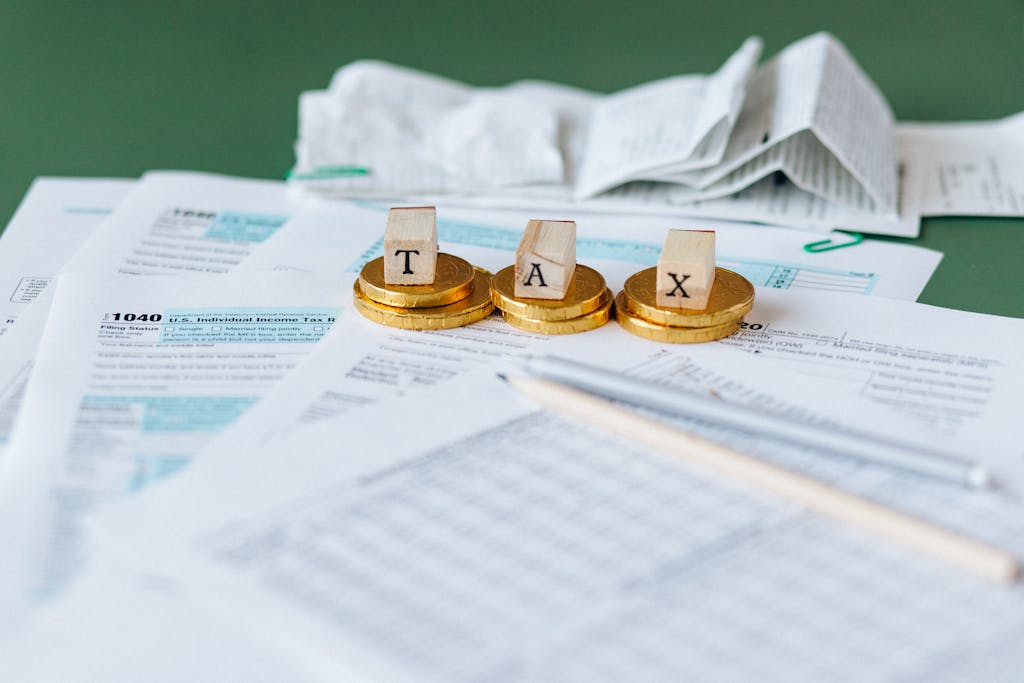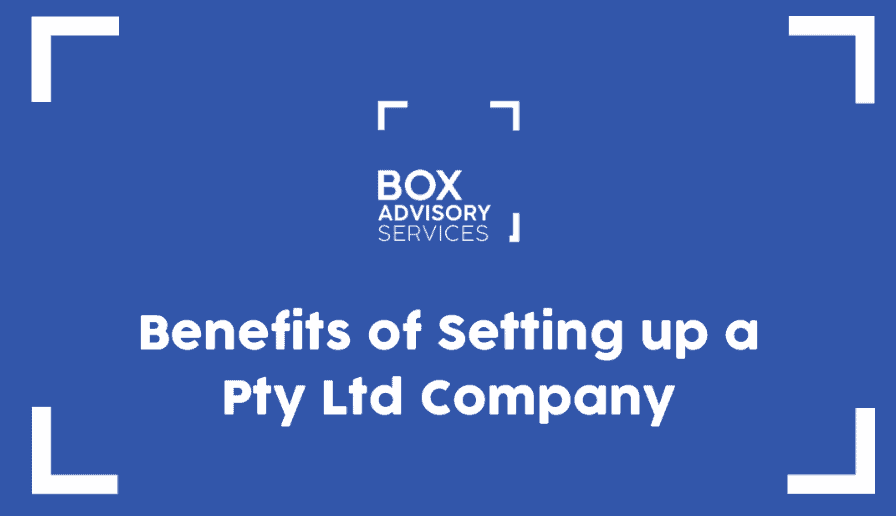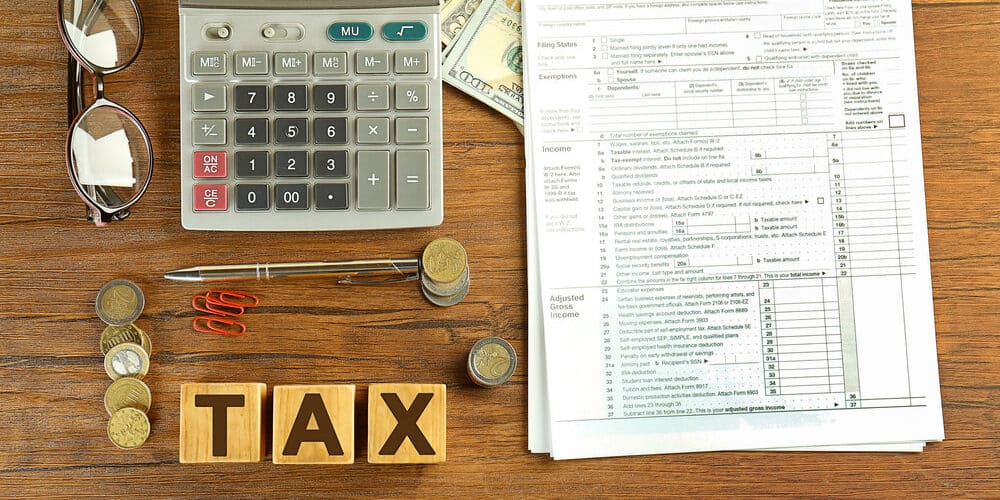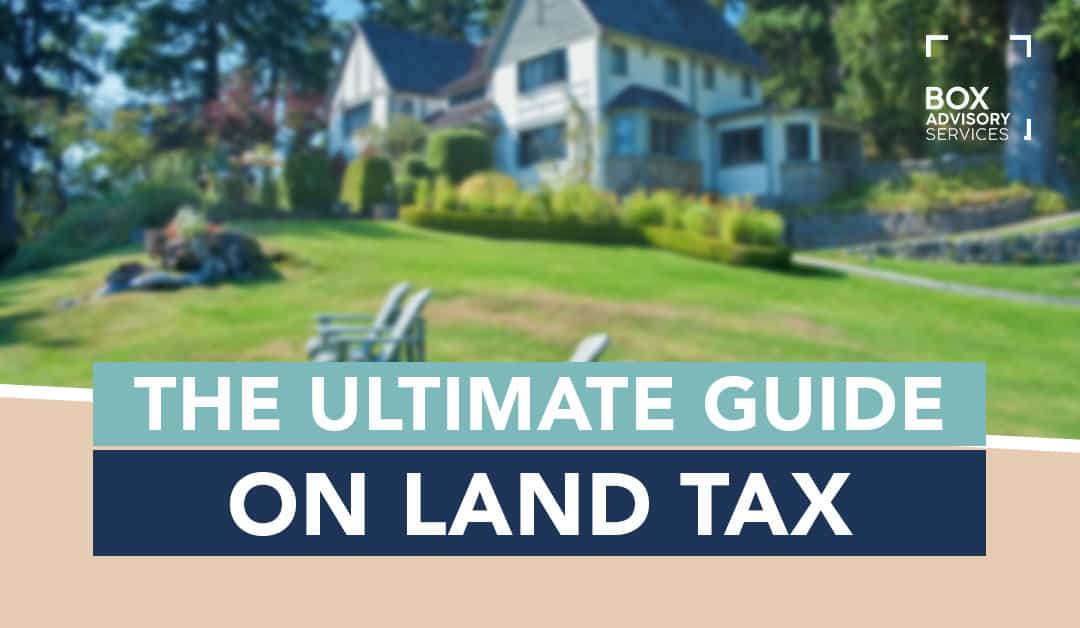
BY
|
The Ultimate Guide on Land Tax
As an investor, there are several property taxes that you need to be aware of, one of them being a land tax.
While there may be some exemptions, paying land tax is an inevitable part of owning a property.
It can often be overwhelming trying to navigate land tax and how it’s assessed – especially because the amount of land tax payable depends on the threshold in each state or territory.
So, we’ve put together a land tax guide to help equip you with all you need to know about property land tax and what strategies you can use to reduce the amount of tax you have to pay.
What Is Land Tax?
Land tax is the tax levied each financial year on the property you own that is above the land tax threshold.
Land tax is generally payable on the unimproved value of the land that investors own; and applies regardless of whether income is earned from the land.
The unimproved value of the land is the value of the land without taking into account any improvements on the land such as:
- buildings;
- landscaping;
- paths; and
- fences
Who Pays Land Tax?
You may have to pay land tax if you own, or jointly own:
- vacant land, including rural land;
- the land where a house, residential unit or flat has been built;
- a holiday home;
- an investment property;
- company title units;
- residential, commercial or industrial units, including car spaces;
- commercial properties, including factories, shops and warehouses; and
- land leased from the state or local government
How Is Land Tax Calculated?
Land tax is calculated on the total value of all your taxable land above the land tax threshold, not on each individual property.
For example, if you own two properties, with the unimproved land value of each respective property amounting to $300,000 and $220,000; then you’ll be liable to pay land tax on a total of $520,000.
If the combined value of your land does not exceed the threshold, no land tax is payable.
Each government website generally has an easy-to-use land tax calculator, so make sure to check them out:
Land Tax Thresholds
The amount of land tax payable is dependent on:
- whether it’s an individual paying land tax or whether its a company or trust; and
- the land tax threshold of each state or territory
For Individuals:
1. New South Wales, payable on 31 December each year:
Land tax is calculated on the total value of your land tax assessment above the threshold.
The thresholds for land values change each year:
| General Land Tax Threshold | Premium Land Tax Threshold |
| $100 + 1.6% of the land value above the threshold, up to the premium threshold | $60,164 + 2% of land value above the threshold |
Thresholds:
| Tax Year | General Land Tax Threshold | Premium Land Tax Threshold |
| 2021 | $755,000 | $4,616,000 |
| 2020 | $734,000 | $4,488,000 |
| 2019 | $692,000 | $4,231,000 |
2. Northern Territory
The Northern Territory is the only territory (and state) that doesn’t require property investors to pay land tax.
3. Queensland, payable on 30 June each year:
| Taxable Value | Land Tax Rate |
| less than $600,000 | $0 |
| $600,000 or more but less than $1,000,000 | $500 + 1 cent for each $1 more than $600,000 |
| $1,000,000 or more but less than $3,000,000 | $4,500 + 1.65 cents for each $1 more than $1,000,000 |
| $3,000,000 or more but less than $5,000,000 | $38,500 + 1.25 cents for each $1 more than $3,000,000 |
| $5,000,000 or more but less than $10,000,000 | $72,500 + 1.75 cents for each $1 more than $5,000,000 |
| $10,000,000 or more | $150,000 + 2.25 cents for each $1 more than $10,000,000 |
4. Australian Capital Territory, payable each quarter:
The total land tax you pay is made up of two amounts: a fixed charge plus a valuation charge.
| Fixed Charge | Valuation Charge |
| $1,326 |
A marginal rate charged on the average unimproved value of the land: 2019-20 and before: averaged over the last 3 years; 2020-21: averaged over the previous 4 years; and 2021-22 and after: averaged over the previous 5 years. |
| Average Unimproved Value | Percentage Marginal Rate |
| up to $150,000 | 0.52% |
| from $150,000 to $275,000 | $780 + 0.62% of the part that is more than $150,000 |
| from $275,001 to $2,000,000 | $1,555 + 1.10% of the part that is more than $275,000 |
| $2,000,000 and higher | $20,530 + 1.12% of the part that is more than $2,000,000 |
5. Tasmania, payable 1 July each year:
| Taxable Value | Land Tax Rate |
| less than $24,999 | $0 |
| $25,000 to $349,999 | $50 + 0.55% of value above $25 000 |
| $350,000 or more | $1,837.50 + 1.5% of value above $350 000 |
6. Victoria, payable on 31 December each year:
| Taxable Value | Land Tax Rate |
| less than $250,000 | $0 |
| $250,000 or more but less than $600,000 | $275+ 0.2% of the amount more than $600,000 |
| $600,000 or more but less than $1,000,000 | $975+ 0.5% of the amount more than $600,000 |
| $1,000,000 or more but less than $1,800,000 | $2,975+ 0.8% of the amount more than $1,000,000 |
| $1,800,000 or more but less than $3,000,000 | $9,375+ 1.3% of the amount more than $1,800,000 |
| $3,000,000 or more | $24,975+ 2.25% of the amount more than $3,000,000 |
7. Western Australia, payable on 30 June each year:
| Taxable Value | Land Tax Rate |
| less than $300,000 | $0 |
| $300,001 to $420,000 | $300 |
| $420,000 to $1,000,000 | $300 + 0.25 cent for each $1 more than $420,000 |
| $1,000,000 to $1,800,000 | $1,750 + 0.90 cent for each $1 more than $1,000,000 |
| $1,800,000 to $5,000,000 | $8,950 + 1.80 cents for each $1 more than $1,800,000 |
| $5,000,000 to $11,000,000 | $66,550 + 2 cents for each $1 more than $5,000,000 |
| $11,000,000 or more | $186,550 + 2.67 cents for each $1 more than $11,000,000 |
8. South Australia, payable 30 June each year:
| Taxable Value | Land Tax Rate |
| less than $450,000 | $0 |
| $450,000 or more but less than $723,000 | $0.50 for every $100 or part of $100 above $450,000 |
| $723,000 or more but less than $1,052,000 | $1,365 + $1.25 for every $100 or part of $100 above $723,000 |
| $1,052,000 or more but less than $1,350,000 | $5,477.50 + $2.00 for every $100 or part of $100 above $1,052,000 |
| $1,350,000 or more | $11,437.50 plus $2.40 for every $100 or part of $100 above $1,350,000 |

Companies and Organisations:
Generally, a company is assessed similarly to an individual.
However, some states and territories have certain specific requirements that others don’t.
For example, in NSW, Tasmania and Victoria, a company is assessed in the same way as an individual, unless it is related to another company.
A company is related if:
- it controls the composition of the board of directors of the other company
- one or more people own more than half the voting shares in two or more companies, or
- a person and a company, in which they are shareholders together, have a controlling interest in another company
When assessing related companies, the concessional company receives the benefit of the threshold, and each other company is assessed without the threshold.
Whereas in Western Australia, the government website makes no specific mention of land tax rates for companies.
So, make sure that you visit the relevant state or territory’s government website for the rates applicable to companies.
Trusts:
A trust is an arrangement where a trustee manages or holds property for the benefit of one or more individuals or organisations – known as a beneficiary.
When calculating your land tax liability, you must consider the value of your interest in the account.
A trust may be liable for land tax and/or surcharge land tax. Make sure you visit the relevant state or territory’s government website for the rates applicable to trusts.
You may be able to reduce the amount you pay by claiming the land tax threshold, depending on the type of trust.
If you’re thinking of purchasing a property through your trust, it’s vital that you review the land tax rules of the state that you’re purchasing in.
For example, in NSW, special trusts, such as family trusts, don’t have the land tax free threshold. This means that you could be subject to a significant land tax bill. So, it’s worth investigating all your options.
Land Tax Exemptions
Depending on the land ownership and use, you may be eligible for a land tax exemption.
For example, the land on which your residential home is situated is, generally, exempt in all the states and territories that require you to pay land tax.
In other words, if the property on the land is your principal place of residence, then you won’t have to pay land tax.
However, you may be eligible for more than one exemption depending on the state or territory. For example, in NSW, you won’t have to pay land tax if the land you own is used for:
- principal place of residence;
- production land, such as a dairy farm;
- boarding houses;
- low-cost accommodation;
- caravan parks;
- non-profit organisations;
- retirement villages, aged care and nursing homes; or
- child care centres
Each state or territory’s government website breaks down when you may be eligible for a land tax exemption, so make sure you check them out.
Key Takeaways
While land tax is an inevitable feature of owning investment property, there are ways in which you can be exempt from land tax liability.
Because each state and territory has different thresholds, exemptions and concessions; it can get tricky – especially if you own land in your personal capacity and own a company that owns the property.
If you are unsure whether you qualify for the land tax exemption or if you would simply like someone to provide you with tailored advice for your situation, you can consult with a qualified tax agent or accountant.
To find out how Box Advisory Services can help you, please book a free consultation with us.

